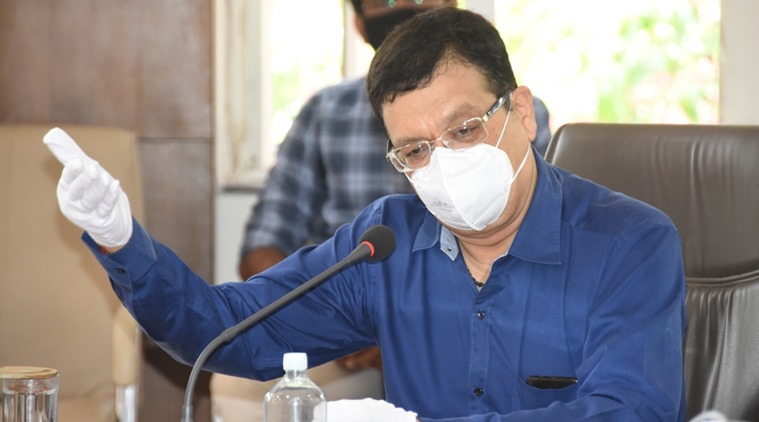 Pune Divisional Commissioner Deepak Mhaisekar. (Twitter@mhaisekar1)
Pune Divisional Commissioner Deepak Mhaisekar. (Twitter@mhaisekar1)
To ensure that there is adequate bed availability in the wake of rising cases of Covid-19, the Pune district administration has set up an additional 1,107 oxygenated beds and another 171 more ICU beds with ventilators. While the administration is hopeful about a dip in the number of cases in the second half of August, it is also preparing for the ‘worst case scenario’.
“There are various projections being made but if we go by the findings of the serological surveys for antibodies done in Delhi and Mumbai, and apply them to other cities, there is some hope that the numbers will go down post August 15 in Pune,” said Divisional Commissioner Deepak Mhaisekar.
“The projected estimates vary but in the worst case scenario, we expect nearly 46,000 active cases in PMC, 15,000 in PCMC, 4,000 in rural and over 1,500 in cantonments by August end and are preparing to face these challenges,” said Mhaisekar.
“Till July 31, there will be an estimated 27,000 active cases,” said Additional Municipal Commissioner of PMC, Rubal Agarwal, adding that even if projections indicate a total of one lakh cases by August 20, at least 30 per cent patients will be from outside the city.
Meanwhile, ramping up bed strength has enabled the administration to add 1,107 oxygenated beds and, as against 2,216 10 days ago, there are a total of 3,323 oxygenated beds, and 171 more ICU beds with ventilators.
“There are a total of 24,194 beds that are available without oxygen,” said Divisional Commissioner Deepak Mhaisekar.
“While the number of cases is going to rise, the administration is finding solutions to handle them,” said District Collector Naval Kishore Ram. He said the positivity rate has risen from 20 to 25 per cent as the number of samples being tested is high in addition to contact tracing being taken up.
According to Saurabh Rao, officer on special duty in the divisional commissioner’s office, the main issue is the availability of beds, and hence government facilities are also being upgraded.
Agarwal, meanwhile, said rapid antigen tests have helped the PMC identify more Covid-19 patients and 40,931 tests through rapid antigen have been carried out so far, and 8,363 positive cases have been detected. “We hope to keep up the pace of testing and identify the infected persons for isolation, and in turn check the spread,” she said.
As bed management was a priority, the PMC officer said the centralised bed management system has become functional with real-time updates via a software. “Few hospitals have already started using the software and in a week, all of them will use the software. This will not only help in locating available beds, but also track the line of treatment given to the particular patient and the medical staff treating the patient,” she said.
Feasibility study before converting small nursing homes for Covid duty
Saurabh Rao, officer on special duty in the divisional commissioner’s office, said the administration will set up an infrastructure task force and conduct a feasibility survey to ascertain how many small nursing homes, those with less than 50 beds, can be added to the Covid network of hospitals and nursing homes.
“We had detailed discussions with IMA, General Practitioners Association and others. At GPA, more than 600 practitioners have offered to work at private and government facilities while the nursing bureau has also offered their nurses and other staff,” he said.